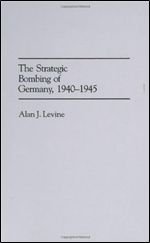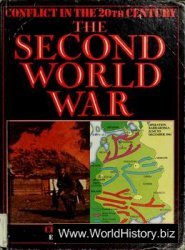Nicholas II was the tsar (emperor) of the Russian Empire from 1 894 until
he was forced to abdicate in 1917. A personally charming individual, he
lacked the intelligence and force of character to influence events effectively.
Given the immense power that rested in the tsar's hands, Nicholas's personality
flaws, inactivity, and irresponsible decisions contributed first to military,
then political catastrophe. In Germany, the comparable inadequacies
of the monarch put power into the hands of military leaders. In Russia,
where there were no candidates for the role of a General Erich Ludendorff,
Nicholas's failings contributed to a more chaotic scene. At best, only the
Empress Alexandra and her personal favorite, Rasputin, ruled, giving misdirection
to the engines of national policy.
Nicholas was bom at the imperial palace of Tsarskoe Selo, outside St.
Petersburg, May 18, 1868. He was the grandson of the reigning tsar,
Alexander II, and the son of Alexander III, who ruled from 1881 to 1894.
Educated by private tutors, he then served happily as an officer in the
Imperial Guards. The inexperienced young man took the throne suddenly
in 1894 when his father, then only fifty, died after a brief illness.
The first twenty years of the new tsar's reign were tumultuous. Russia
went through the first throes of industrialization and urbanization, and the
country fought a disastrous war with Japan in 1904-1905. In the wake of
the Revolution of 1905, which stemmed partly from wartime defeats,
Nicholas allowed the political form of his age-old monarchy to be modified.
A Duma (parliament) with limited power was established. Under the
political surface, however, a variety of revolutionary groups worked to
overthrow the existing system. Nicholas remained a deep-dyed conservative
determined to preserve Russia's social and political order, uncomfortable
with any reforms. Even the changes of 1905 he hoped to reverse at some
future date.
Nicholas played the role of privileged bystander during the summer crisis
of 1914. Stronger personalities like Foreign Minister Sergei Sazonov and
Minister of War Vladimir Sukhomlinov determined the Russian government's
responses as war neared. The tsar signed the mobilization orders that
his ministers demanded, appointed his uncle. Grand Duke Nicholas, to
direct military operations, then faded from the scene.
When he reemerged, in the summer of 1915, it was to make a fatal
decision. The tsar reheved his uncle, who had presided over the disastrous
spring and summer retreat as a German offensive conquered Russia's
western provinces, and took over the high command himself. But the
country's social and economic fabric was already straining, and opposition
in the Duma to the conduct of the war was becoming more vocal.
Ironically, Nicholas presided over no further military disasters. He left the
actual decision making to his diligent chief of staff, Mikhail Alekseev. And
the campaign of 1916 featured the successful offensive led by General Alexis
Brusilov. Only in the area of military appointments, where the tsar had
promoted the careers of incompetent court favorites since 1914, did Nicholas
cause immediate harm. Nonetheless, Nicholas's absence from the capital at
St. Petersburg (renamed Petrograd at the war's start) added to the woes of the
monarchy and the general instability of the nation and its government.
With the tsar gone—he took up residence at military headquarters in
Mogilev, over four hundred miles from the capital—only Empress Alexandra
stood at the center of national decision making. Her liaison with
Rasputin, the disreputable holy man, tainted the reputation of the monarchy.
But equally harmful were the bootlicking ministers whom Rasputin put into
office, often in place of men immeasurably more competent. Thus, the
energetic Alexis Polivanov, the most effective Russian war minister during
the conflict, found himself pushed from office in March 1916.
Nicholas was at Mogilev in March 1917 as Russia's armed forces
prepared for the new year's campaign. When a women's demonstration in
the capital escalated, first into bread riots, then into military mutiny, he could
barely follow the situation. His efforts to return to Petrograd to regain
control of the country's affairs failed. Striking railroad workers blocked his
route, and he was forced to detour to the headquarters of the northern front,
where the armies defending Petrograd were located. There, a coterie of his
generals convinced him to abdicate.
The former tsar and his family were confined, first at their palace near
Petrograd, then in the remote city of Ekaterinburg in the Urals. Sadly for
them, the tsar and his family were still a political factor elsewhere in Europe
in this troubled era. The British government, for example, might have
assured their safety by demanding their safe passage from Russia. But for
Prime Minister David Lloyd George to do so would have endangered
London's ties with the postrevolutionary government. For Britain's King
George V, efforts in behalf of his Russian relatives might endanger his own
throne. In consequence, concern for the lives of Nicholas and his family was
pushed aside.
With the Revolution of November 1917, the Bolsheviks took power.
Russia's population polarized and drifted toward civil war. When White
forces, the opponents of the Communists, neared the place of confinement
for the former reigning family, Nicholas, his wife, and their five children
were executed during the night of July 16/17, 1918. Their remains were
only recently discovered and identified.
|
|
||||||||
|
Www.WorldHistory.Biz
Sundries
 Contact Contact
|
 
11-08-2015, 17:48
Nicholas II (1868-1918)
  |
|||||||
 |
 |
 |
 |
|||||
|
||||||||

 World History
World History





